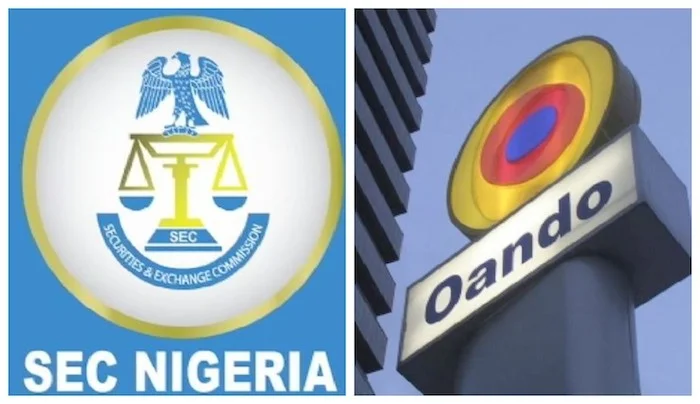On February 25, 2021, Oando Plc, a leading Nigerian energy company, announced its intention to appeal a Federal High Court ruling in Abuja that dismissed three fundamental rights lawsuits filed by the company and its directors. The decision, delivered by Justice Giwa Ogunbanjo, struck out the cases due to a lack of jurisdiction, marking a significant development in Oando’s ongoing legal dispute with the Securities and Exchange Commission (SEC).
Background of the Dispute
The lawsuits were initiated by Oando Plc and three of its directors—Group Managing Director Adewale Tinubu, Deputy Group Managing Director Omamofe Boyo, and Olufemi Adeyemo—in response to actions taken by the SEC. In a letter dated May 31, 2019, the SEC accused Oando and its directors of violating the SEC Code of Corporate Governance, the Investments and Securities Act (ISA) 2007, and other regulatory provisions. The sanctions stemmed from investigations prompted by shareholder petitions in 2017, which alleged corporate governance lapses and mismanagement at Oando.
Oando and its directors argued that the SEC’s investigation process violated their fundamental human rights, specifically citing a lack of fair hearing. They sought judicial intervention to challenge the SEC’s directives, whichIncluded the imposition of fines and the removal of key management personnel.
Court’s Ruling and Reasoning
In his judgment, Justice Ogunbanjo ruled that the Federal High Court lacked jurisdiction to hear the cases. He emphasized that disputes involving capital market issues fall under the purview of the Investment and Securities Tribunal (IST), a specialized body established to adjudicate such matters. The judge referenced Section 36(2) of the Constitution of the Federal Republic of Nigeria, which allows individuals to seek redress through tribunals or administrative agencies for civil rights and obligations, provided the decisions are not final.
The court further clarified that the IST holds primary jurisdiction over cases related to capital market regulations, effectively barring the Federal High Court from entertaining Oando’s claims under the guise of enforcing fundamental human rights.
Oando’s Response and Appeal Plans
Oando Plc expressed its disagreement with the court’s decision, asserting that the ruling did not adequately address their concerns regarding the SEC’s alleged lack of due process. In a statement, an Oando official acknowledged respect for the judiciary but maintained that the battle was far from over. The company has lodged an appeal with the Court of Appeal in Abuja, contesting the referral of the case to the IST.
Oando and its directors argue that the Constitution of the Federal Republic of Nigeria grants citizens the right to enforce their fundamental rights, which they believe supersedes the provisions of the Investments and Securities Act 2007. This position forms the basis of their appeal, as they seek to challenge the SEC’s actions and the court’s jurisdictional ruling.
Implications for Oando and the Capital Market
The ongoing legal tussle between Oando and the SEC highlights broader issues of regulatory oversight and corporate governance in Nigeria’s capital market. The outcome of the appeal could set a precedent for how disputes between regulators and public companies are resolved, particularly regarding the jurisdiction of the IST versus the Federal High Court.
As Oando prepares to escalate the matter to the appellate court, stakeholders in Nigeria’s financial and energy sectors are closely monitoring developments. The company remains committed to defending its position while navigating the complexities of regulatory compliance and corporate governance.






